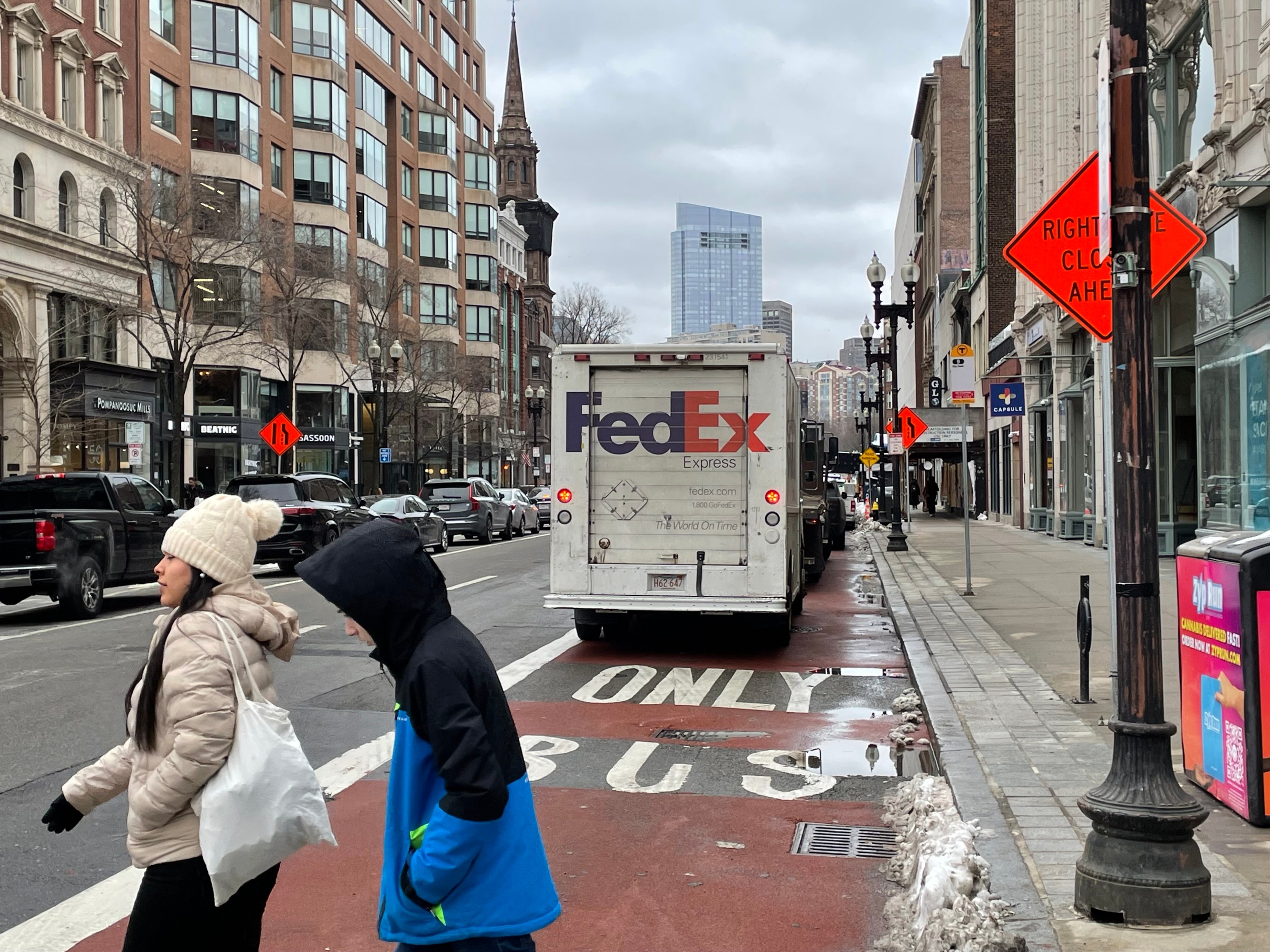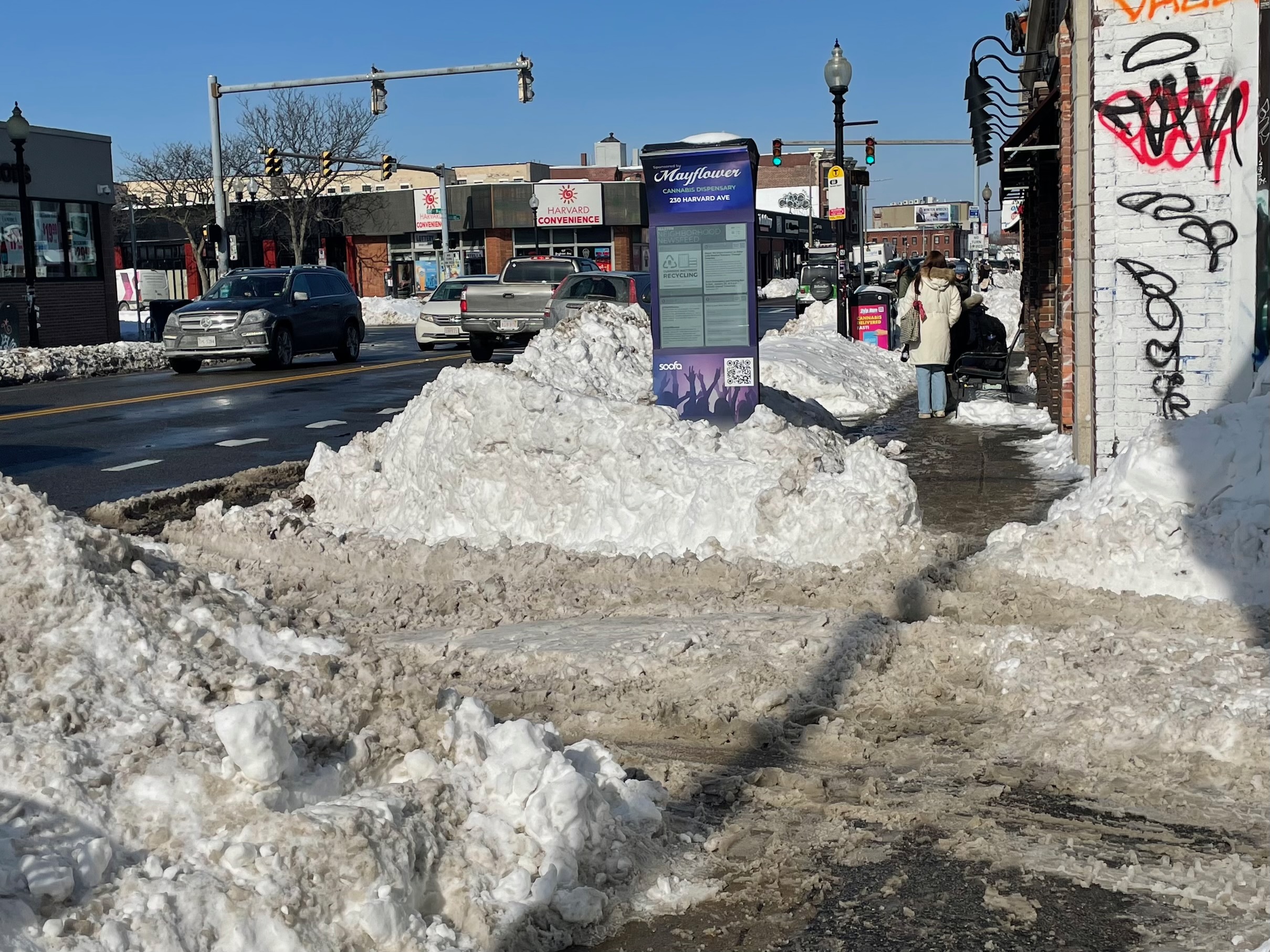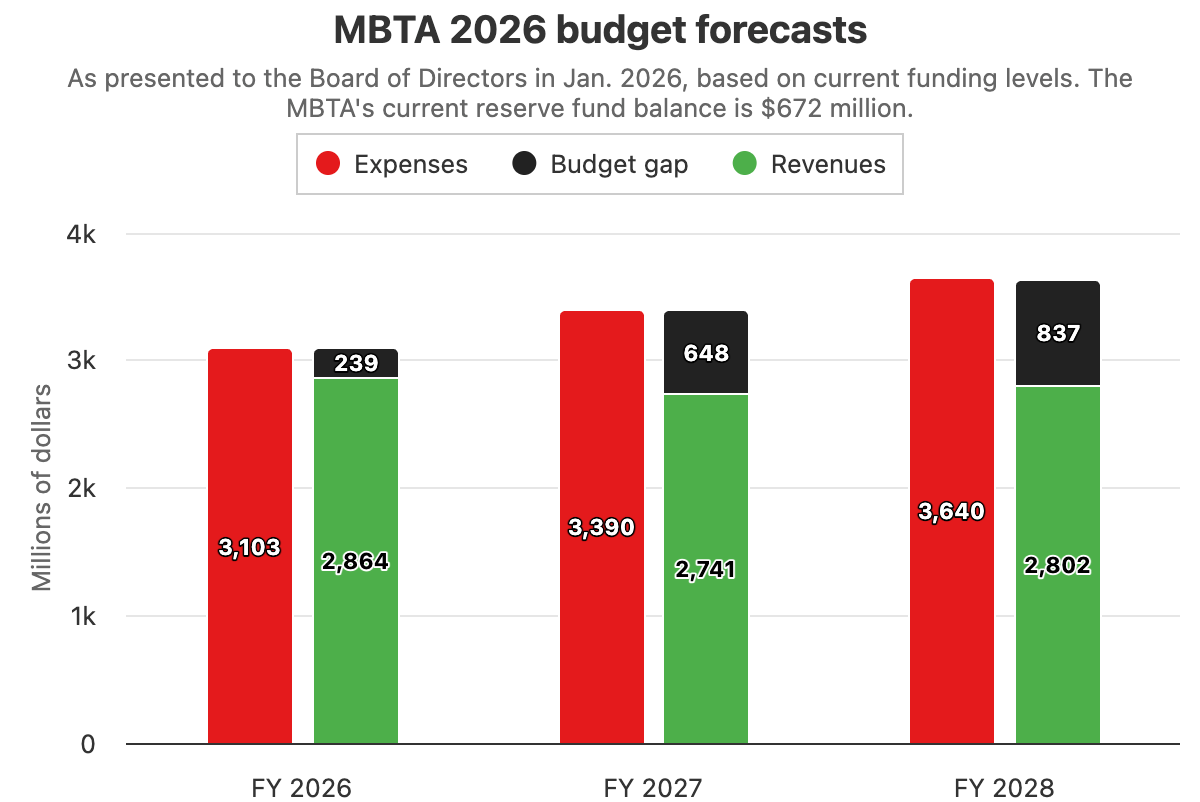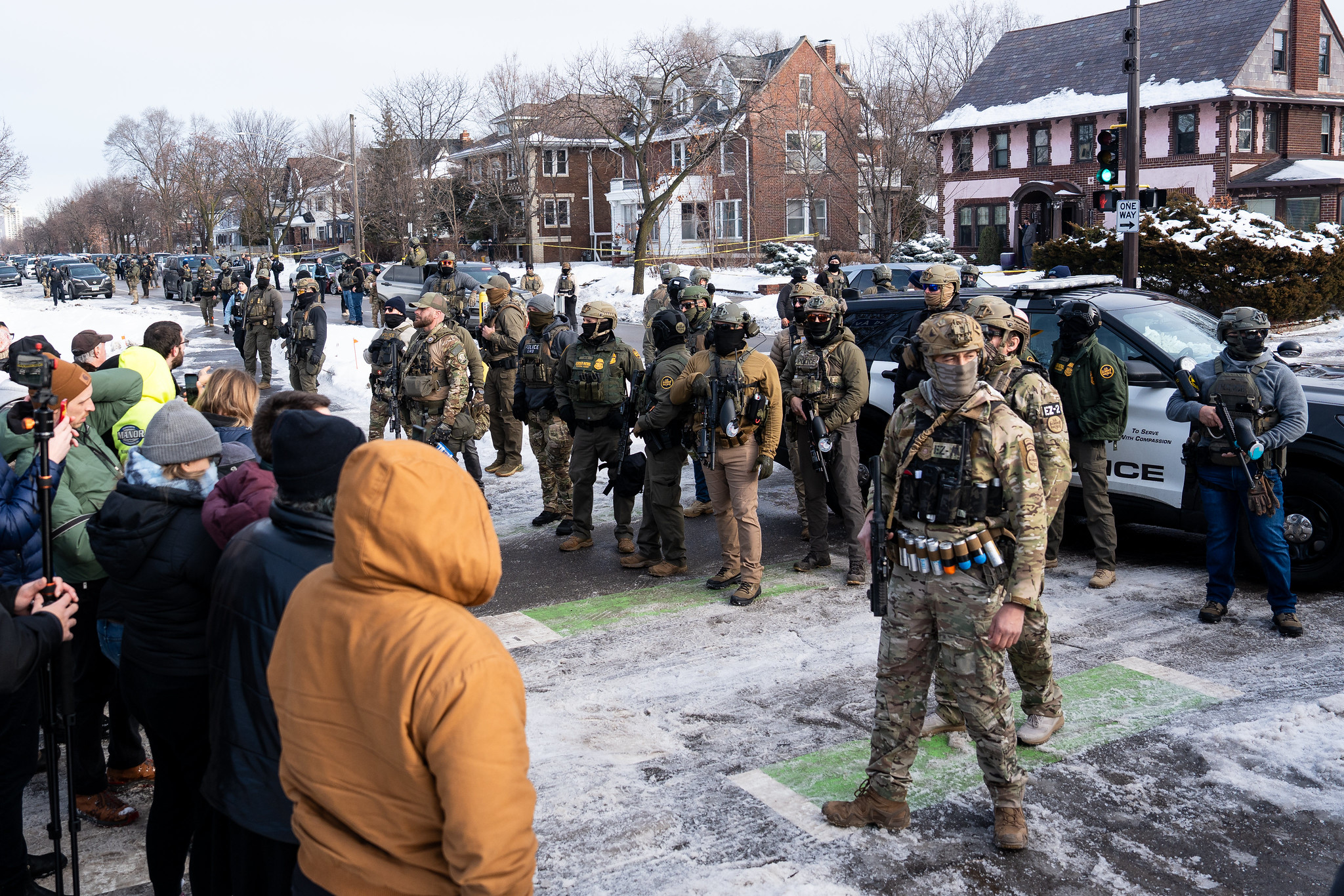On Monday, the MBTA published a set of proposed rules and regulations for a new bus-mounted automated enforcement system, which would let the agency automatically identify and record vehicles that are illegally blocking bus stops and bus lanes, and then issue fines to those vehicles' owners.
Under the proposed regulations, the owner of any vehicle caught blocking a bus stop would receive a $100 fine for each violation.
Owners of passenger vehicles caught blocking a bus lane will receive a $25 fine for the first offense within any 60-day period.
Fines would increase incrementally if the same vehicle is caught violating a bus lane multiple times in any 60-day period:
- $50 for the second offense
- $100 for the third offense
- $125 for the fourth and subsequent offenses
Commercial vehicles – like the delivery vans that habitually block the Silver Line bus lanes downtown – will face steeper fines, and a longer lookback period for multiple offenses.
- $50 for the first bus lane violation by a commercial vehicle within any 12-month period
- $75 for the second offense within a 12-month period
- $100 for the third offense within a 12-month period
- $125 for the fourth and subsequent offense within any 12-month period
The proposed fines comply with the limits established the new state law, "An Act relative to bus lane enforcement," which Governor Healey signed in the first week of 2025. That law sets a minimum fine of $25 and a maximum of $125 for bus lane violations caught on camera, and a flat $100 fine for bus stop violations.
Existing City of Boston fines for illegal parking range from $25 for blocking a driveway to $100 for blocking a bus stop and $120 for illegally using a handicapped parking space.
However, as the Boston Globe reported in 2019, many commercial delivery vehicles rack up hundreds of tickets over the course of a year and simply treat those fines as a cost of doing business.
The proposed regulations also establish processes for appealing fines, for car rental agencies to transfer fines to their lessors, and for privacy. The T will be prohibited from sharing camera footage with law enforcement agencies without a court order, and all footage would be destroyed after 120 days.
At the April meeting of the MBTA board of directors, Rachel Morse, the T's Director of Transit Policy, told board members that "this is designed to be a revenue-neutral program really aimed at changing driver behavior, getting cars out of bus lanes and bus stops."
According to Morse, any fine revenue that the T collects above and beyond the cost of paying for cameras and administering the automated enforcement program will go to the statewide transportation trust fund, not to the transit agencies.
The T will kick off a 21-day public comment period for feedback on the proposed rules with a virtual public hearing on August 21 at 6 p.m. (details here). The regulations would then go up for a vote of approval from the MBTA's board of directors later this fall.






